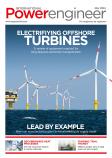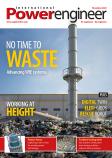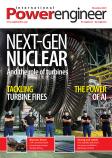Paul Boughton
As government agencies in Japan struggle to bring several of the country's nuclear reactors under control in the wake of Friday (11 March)'s earthquake, European plans for reviving nuclear power sectors are coming under pressure. As of Monday morning automated systems have shut down all operational nuclear reactors at the Onagawa, Fukushima and Tokai power complexes. However, the loss of electricity at some units has meant water cooling systems needed to stop the reactor cores from overheating are not functioning, threatening core decomposition, which could entail a highly dangerous radiation release into the atmosphere.
The events are already prompting investors to question whether European government support for nuclear power—which has enjoyed a revival over the past five years—could disappear amid public health and safety concerns. In the wake of the Chernobyl nuclear power plant disaster in 1986, public opinion forced an effective moratorium on new nuclear investment, but this has gradually abated as climate change concerns have come to the fore. Now events in Japan could galvanise that opposition again.
In particular the German government is facing a popular backlash against its energy concept, which extends the country's nuclear fleet's lifespans by eight years for reactors commissioned before 1980 and by 14 years for younger plants. The policy is already considered to be controversial on account of the manner in which the legislation was passed—without acquiescence from the upper house—but also because the German public as a whole is broadly opposed to nuclear power. Indeed, the opposition party has vowed to revoke the lifetime extension, should it come to power.
Chancellor Angela Merkel told Reuters over the weekend that her government was consulting with nuclear experts and watching the situation in Japan closely. Despite the Chancellor reiterating her support for nuclear power, operators E.ON and RWE saw their share prices slide this morning by 2.8% and 3.3 per cent respectively, as markets sought to price in the new risks. If German policy were to change course, the oldest plants would probably see their lifetime shortened. These include E.ON's Unterweser and Isar 1 reactors, RWE's Biblis A and B, EnBW Energie Baden-Wuerttemberg AG's Neckarwestheim 1 and Philippsburg 1 as well as Vattenfall AB's Brunsbuettel and Kruemmel facilities, which are co-owned by E.ON. Decommissioning these plants would cut around 80,000TWh or 15 per cent from Germany's supply—a figure which would be considered manageable, implying such a policy might be countenanced.
Elsewhere, EU energy commissioner Guenther Oettinger said he plans a meeting in the next few days to discuss lessons from the accident with nuclear safety authorities, while UK energy secretary Chris Huhne said on Sunday he had asked the chief nuclear inspector to report on the implications of the Japanese crisis. Other states likely to review their stance on nuclear policy given recent events include Sweden, Italy and Spain.
Governments in Europe that have moved to increase the role of nuclear power in their generation mix will undoubtedly face new pressure in the coming weeks and months to review their policies. In Germany especially, the backlash will be fierce and older plants are sure to come under close scrutiny. However, the decision on the part of various European governments to turn to nuclear power is one of necessity; pressure to develop low-emission generation capacity is the critical driver. This pressure has not abated; if anything, the European Commission has sought more ambitious emission reduction targets. In addition, Europe's geography means that—with the possible exception of Italy—seismic activity on anything like the scale that Japan has recently seen is virtually unthinkable. Consequently, events in the Pacific are unlikely to significantly sway the current overall policy trajectory in Europe.
Nevertheless, there is a good chance that safety standards will become even tighter as governments come under pressure from their electorates to be seen to be doing something, and insurance costs could rise, both forcing up capital expenditure requirements even higher. Not all reactor models will be affected equally: in the wake of the September 2001 terrorist attacks in the United States the European Pressurized Reactor (EPR) was specifically designed to withstand potential terrorist assaults, including a plane being flown into the plant. So although the EPR has recently fallen from favour somewhat, events in Japan may play to its strengths.
Although Europe's "Nuclear Renaissance" is not under threat from the fallout of Japan's earthquake, it is worth remembering that other factors pose increasing threats. Slower demand growth arising from the recession, scarce financial capital and the perception of increased political risk in parts of Eastern Europe are all serving to weaken momentum behind projects such as Cernavoda or Temelin. So although the traumatic events in Japan are creating headlines, underlying existing trends are of greater consequence.
The events are already prompting investors to question whether European government support for nuclear power—which has enjoyed a revival over the past five years—could disappear amid public health and safety concerns. In the wake of the Chernobyl nuclear power plant disaster in 1986, public opinion forced an effective moratorium on new nuclear investment, but this has gradually abated as climate change concerns have come to the fore. Now events in Japan could galvanise that opposition again.
In particular the German government is facing a popular backlash against its energy concept, which extends the country's nuclear fleet's lifespans by eight years for reactors commissioned before 1980 and by 14 years for younger plants. The policy is already considered to be controversial on account of the manner in which the legislation was passed—without acquiescence from the upper house—but also because the German public as a whole is broadly opposed to nuclear power. Indeed, the opposition party has vowed to revoke the lifetime extension, should it come to power.
Chancellor Angela Merkel told Reuters over the weekend that her government was consulting with nuclear experts and watching the situation in Japan closely. Despite the Chancellor reiterating her support for nuclear power, operators E.ON and RWE saw their share prices slide this morning by 2.8% and 3.3 per cent respectively, as markets sought to price in the new risks. If German policy were to change course, the oldest plants would probably see their lifetime shortened. These include E.ON's Unterweser and Isar 1 reactors, RWE's Biblis A and B, EnBW Energie Baden-Wuerttemberg AG's Neckarwestheim 1 and Philippsburg 1 as well as Vattenfall AB's Brunsbuettel and Kruemmel facilities, which are co-owned by E.ON. Decommissioning these plants would cut around 80,000TWh or 15 per cent from Germany's supply—a figure which would be considered manageable, implying such a policy might be countenanced.
Elsewhere, EU energy commissioner Guenther Oettinger said he plans a meeting in the next few days to discuss lessons from the accident with nuclear safety authorities, while UK energy secretary Chris Huhne said on Sunday he had asked the chief nuclear inspector to report on the implications of the Japanese crisis. Other states likely to review their stance on nuclear policy given recent events include Sweden, Italy and Spain.
Governments in Europe that have moved to increase the role of nuclear power in their generation mix will undoubtedly face new pressure in the coming weeks and months to review their policies. In Germany especially, the backlash will be fierce and older plants are sure to come under close scrutiny. However, the decision on the part of various European governments to turn to nuclear power is one of necessity; pressure to develop low-emission generation capacity is the critical driver. This pressure has not abated; if anything, the European Commission has sought more ambitious emission reduction targets. In addition, Europe's geography means that—with the possible exception of Italy—seismic activity on anything like the scale that Japan has recently seen is virtually unthinkable. Consequently, events in the Pacific are unlikely to significantly sway the current overall policy trajectory in Europe.
Nevertheless, there is a good chance that safety standards will become even tighter as governments come under pressure from their electorates to be seen to be doing something, and insurance costs could rise, both forcing up capital expenditure requirements even higher. Not all reactor models will be affected equally: in the wake of the September 2001 terrorist attacks in the United States the European Pressurized Reactor (EPR) was specifically designed to withstand potential terrorist assaults, including a plane being flown into the plant. So although the EPR has recently fallen from favour somewhat, events in Japan may play to its strengths.
Although Europe's "Nuclear Renaissance" is not under threat from the fallout of Japan's earthquake, it is worth remembering that other factors pose increasing threats. Slower demand growth arising from the recession, scarce financial capital and the perception of increased political risk in parts of Eastern Europe are all serving to weaken momentum behind projects such as Cernavoda or Temelin. So although the traumatic events in Japan are creating headlines, underlying existing trends are of greater consequence.


















